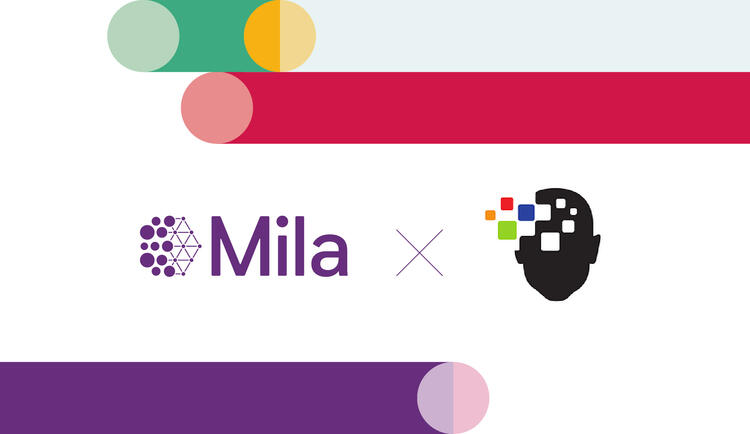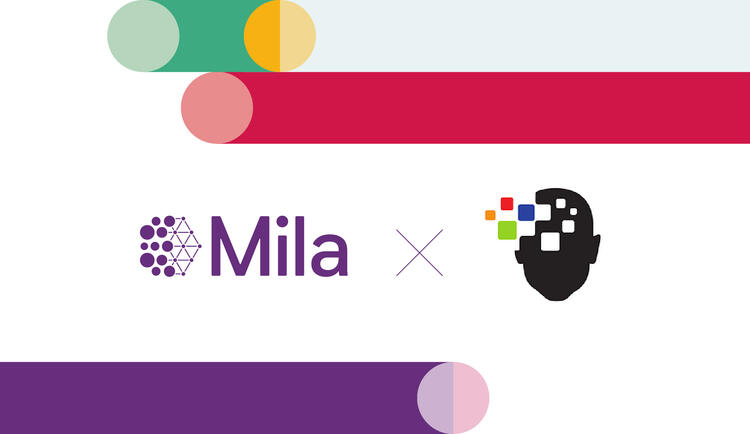
Mila News︱Brigitte Tousignant
Each year, Earth Day is an opportunity for individuals and organizations to assess the impact of their actions on the environment and help in the fight against climate change. Many faculty, researchers, students, and interns at Mila are making a difference by focusing their research efforts toward developing artificial intelligence (AI) and deep learning tools for the benefit of our planet.
From designing an immersive website geared toward educating the general public to compel them to put climate change at the forefront of their everyday choices to mapping glaciers in the Hindu Kush Himalayan region, members of the Mila ecosystem are devoting time and energy to tackling the environmental threats facing humanity.
Interdisciplinary Initiatives for the Benefit of the Planet
Mila is collaborating on numerous projects with industry and academic partners related to climate change and the environment, including promising research advances on the carbon footprint of AI and the reduction of greenhouse gas (GHG) emissions in the energy sector:
CodeCarbon
While AI can benefit society in many ways, the amount of energy needed to support the massive computing power it requires can come at a high cost to the environment. That is why in December 2020, Mila, in collaboration with GAMMA of the Boston Consulting Group, Comet, and Haverford College released CodeCarbon. This open-source software can help track and estimate the location-dependent carbon footprint of algorithms and code. The ability to track CO2 emissions represents a significant step forward in developers’ ability to use energy resources wisely and, therefore, reduce the impact of their work on an increasingly fragile environment. CodeCarbon will help introduce greater transparency into the developer community, which can now measure and then report emissions created by a wide range of computing methods.
Le Case of Morocco
This past November, the Ministry of the Environment and Fight Against Climate Change awarded $840,000 to Mila, IVADO, Université du Québec à Rimouski and Polytechnique Montréal in support of a major project that will contribute to the wider deployment of renewable energy and support Morocco’s efforts to reduce greenhouse gas (GHG) emissions in its energy sector. The project was approved under the Ministry’s International Climate Cooperation Program, as part of the 2013-2020 Climate Change Action Plan—a program that aims to strengthen the capacity of francophone countries to adapt to the impacts of climate change with the help of Quebec’s resources and leading research institutes. Led by Yoshua Bengio (Mila), professors Loubna Benabbou (Université du Québec à Rimouski) and Hanane Dagdougui (Polytechnique Montréal), and Zouheir Malki (IVADO), the potential of this project is further strengthened by support from the Moroccan Agency for Sustainable Energy (Masen) and the Mohammadia School of Engineering (EMI). For more information, click here.
Tracking Glacial Melting in the Hindu Kush Himalayan Region
The Hindu Kush Himalayan region is home to the world’s highest mountains and is also home to the world’s third-largest concentration of snow and ice, making the glaciers of the Hindu Kush Himalayas the main source of freshwater for approximately two billion people living in the region. Yet, it is estimated that by the end of this century, two-thirds of that snow and ice will be lost due to climate change. A network of scientists and environmentalists from Microsoft’s AI for Good Research Lab, the International Centre for Integrated Mountain Development (ICIMOD), the University of Wisconsin and Mila are working to understand the extent of glacial melting in the region, its effects and how to minimize its impact. To do this, the team is drawing from openly available mapping and satellite data from a variety of sources that is then processed by a machine learning algorithm. The final datasets are publicly available to AI researchers and analysts. For more information, click here.
Climate Change AI
Climate Change AI (CCAI) is an organization created by an international group of volunteers from academia and industry with the goal of catalyzing impactful work at the intersection of climate change and machine learning. The CCAI’s core team includes Mila members David Rolnick (Assistant Professor, McGill), Sasha Luccioni (Postdoc, UdeM), Tegan Maharaj (PhD Student, Polytechnique Montréal), and Yoshua Bengio who serves as a CCAI Advisor. www.climatechange.ai/.
Climate Change and Environmental Research at Mila
At Mila, many research projects led by our experts at the interface of data science, machine learning and environmental science show great promise. Here is an overview of recent publications in this area:
Using Artificial Intelligence to Visualize the Impacts of Climate Change
Sasha Luccioni (UdeM/Mila), Victor Schmidt (UdeM/Mila), Vahe Vardanyan (Ubisoft), Yoshua Bengio (UdeM/Mila)
DC3: A learning method for optimization with hard constraints
Priya L. Donti (Carnegie Mellon University), David Rolnick (McGill/Mila), J Zico Kolter (Bosch Center for AI)
Analyzing Sustainability Reports Using Natural Language Processing
Sasha Luccioni (UdeM/Mila), Emily Baylor (McGill), Nicolas Duchêne (UdeM/Mila)
Machine Learning for Glacier Monitoring in the Hindu Kush Himalaya
Shimaa Baraka (Mila), Benjamin Akera (Mila), Bibek Aryal (University of Texas at El Paso), Tenzing Sherpa (Integrated Centre for Mountain Development), Finu Shresta (Integrated Centre for Mountain Development), Anthony Ortiz (Microsoft AI for Good Research Lab), Kris Sankaran (University of Wisconsin - Madison), Juan Lavista Ferres (Microsoft AI for Good Research Lab), Mir Matin (Integrated Centre for Mountain Development), Yoshua Bengio (UdeM/Mila)
Spatiotemporal Features Improve Fine-Grained Butterfly Image Classification
Marta Skreta (University of Toronto/Mila), Sasha Luccioni (UdeM/Mila), David Rolnick (McGill/Mila)
Predicting Regional Locust Swarm Distribution with Recurrent Neural Networks
Hadia Mohmmed Osman Ahmed Samil (African Institute for Mathematical Sciences), Annabelle Martin (UdeM/Mila), Arnav Kumar Jain (Microsoft IDC), Susan Amin (McGill/Mila), Samira Ebrahimi Kahou (ÉTS/Mila)
Lynn H. Kaack (ETH Zürich), Priya L. Donti (Carnegie Mellon University), Emma Strubell (Carnegie Mellon University), David Rolnick (McGill/Mila)
The Mila Ecosystem
Nearly 20 members of the Mila community, including two professors and two postdoctoral researchers, specialize in research that can help fight the harmful impacts of climate change:
Faculty
David Rolnick, McGill
Yoshua Bengio, UdeM
Postdocs
Sasha Luccioni, UdeM
Alex Hernandez-Garcia, UdeM
PhD Students
Mélisande Teng, UdeM
Victor Schmidt, UdeM
Master's Students
François David, UdeM
Prabodh Wankhede, UdeM
Interns
Sirisha Reddy G, ÉTS
Sunand Raghupathi, Columbia University
Tianyu Zhang, UdeM
Alexia Reynaud, Polytechnique Montréal
Marta Skreta, UofT
Srishti Yadav, SFU
Venkatesh Ramesh
Aditya Jain
The annual celebration of Earth Day reinforces that many of our shared challenges require AI experts and innovative solutions. While AI is an emerging technology still in the early stages of rapid growth, there is no denying that AI is a tool that can serve the common good and contribute to protecting the future of our planet.




